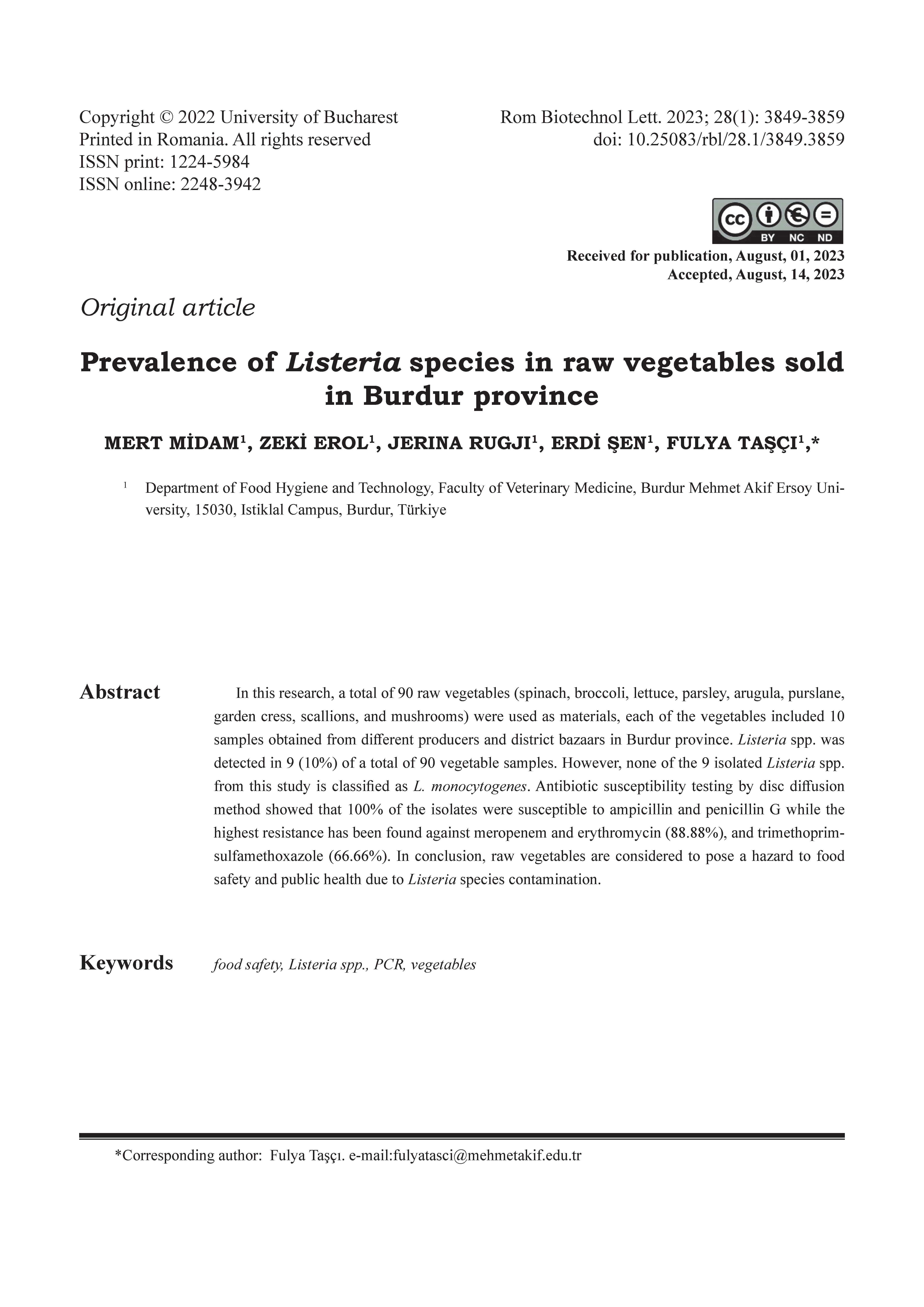Prevalence of Listeria species in raw vegetables sold in Burdur province
DOI:
https://doi.org/10.25083/rbl/28.1/3849.3859Keywords:
food safety, Listeria spp., PCR, vegetablesAbstract
In this research, a total of 90 raw vegetables (spinach, broccoli, lettuce, parsley, arugula, purslane, garden cress, scallions, and mushrooms) were used as materials, each of the vegetables included 10 samples obtained from different producers and district bazaars in Burdur province. Listeria spp. was detected in 9 (10%) of a total of 90 vegetable samples. However, none of the 9 isolated Listeria spp. from this study is classified as L. monocytogenes. Antibiotic susceptibility testing by disc diffusion method showed that 100% of the isolates were susceptible to ampicillin and penicillin G while the highest resistance has been found against meropenem and erythromycin (88.88%), and trimethoprim-sulfamethoxazole (66.66%). In conclusion, raw vegetables are considered to pose a hazard to food safety and public health due to Listeria species contamination.





